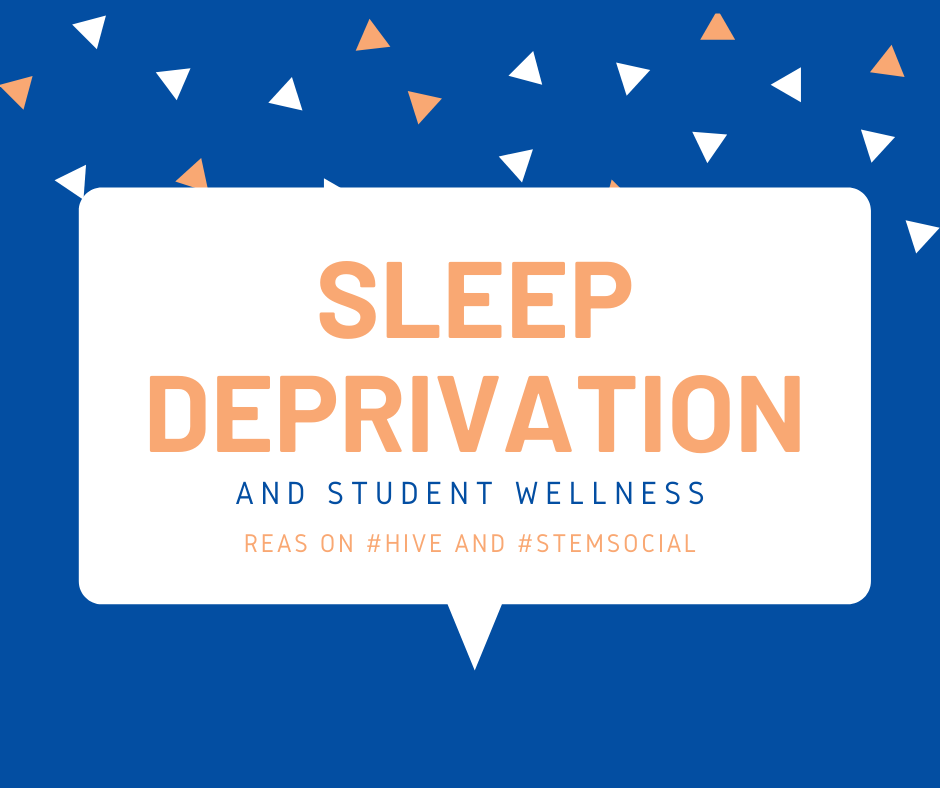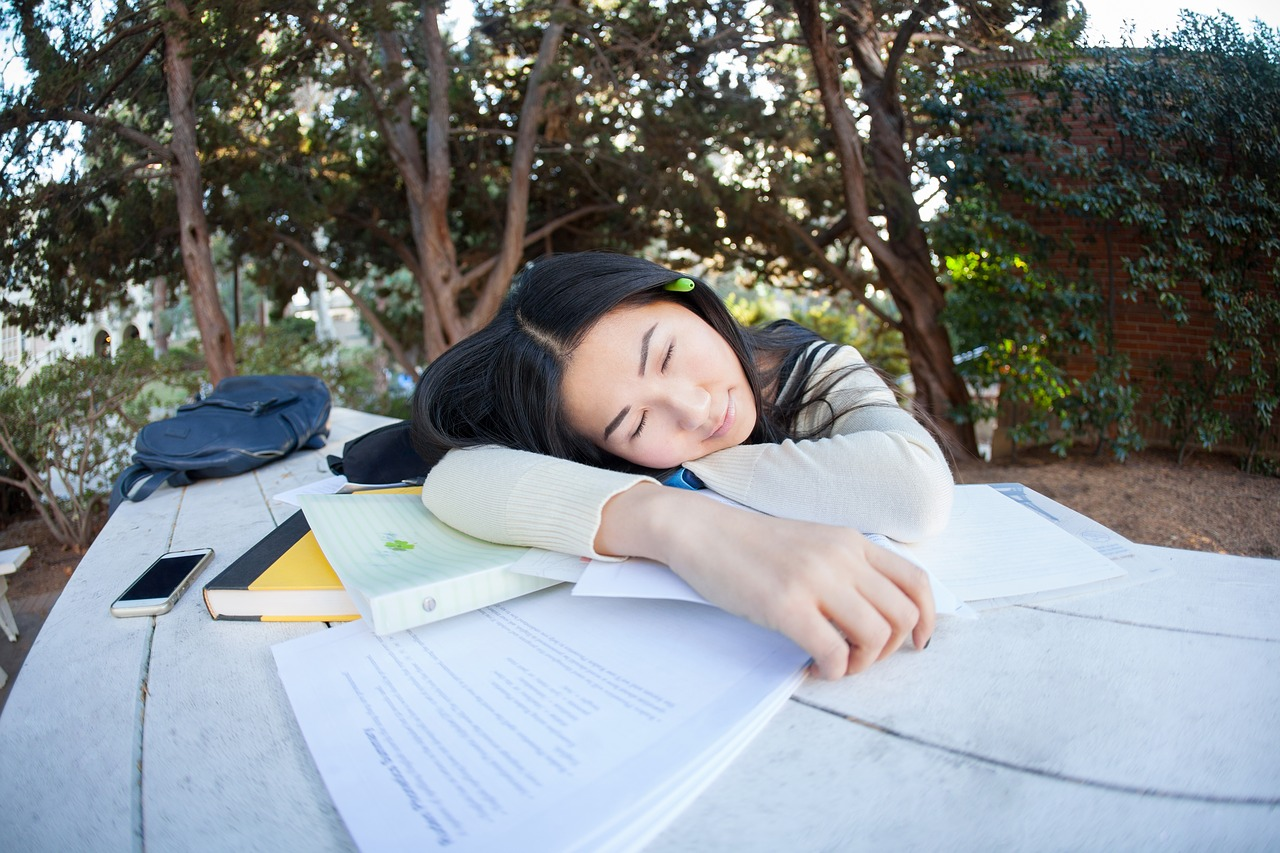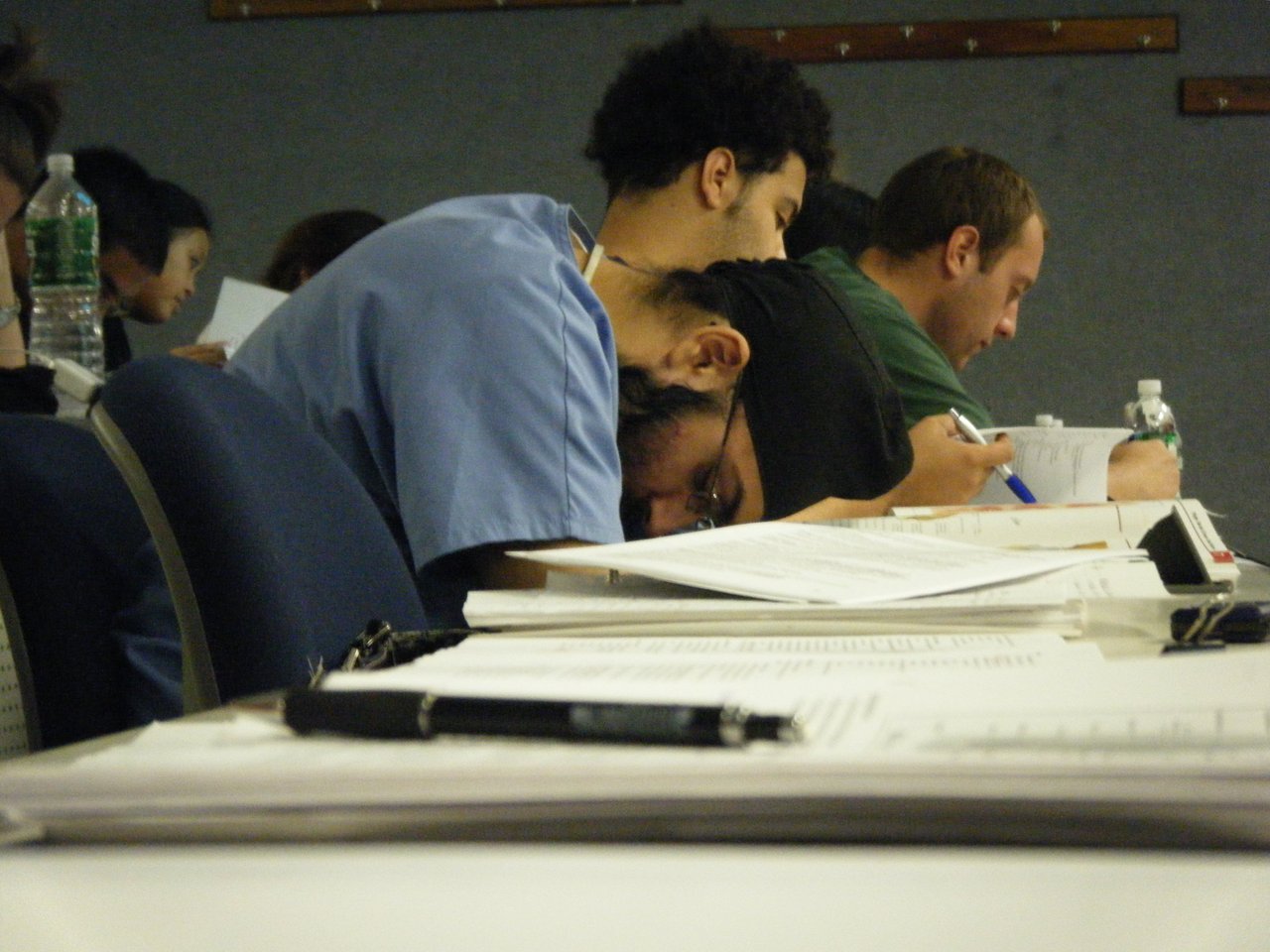
Sleep is an essential process for one's general health and well-being. It is something that individuals go through daily, and a lack of it can cause people to stop working at their best. Although it is an essential part of people's life, some people can't get enough of it. Sleep deprivation is a widespread occurrence in the population. It has been discovered to be more prevalent in students in high school and above. From having to do several class-related obligations and bearing the burden of academic work to having to maintain their social life and pursuing interests outside of school, it’s no surprise that they end up having to deny themselves hours of sleep to accomplish all these tasks. Sleep is often neglected especially among all students, to the point that it has started to become quite a big problem.
Sleep deprivation is a broad phrase that refers to a lack of both quantity and/or quality of sleep. This state of insomnia can be deliberate or involuntary, and it can be induced by a variety of circumstances ranging from daily duties to sleep disorders. Sleep, like food and water, is one of the basics that everyone requires, yet many people do not receive enough of it.
Getting enough healthy sleep at the appropriate times will improve one's mental and physical health, as well as one's quality of life. What happens during sleeping has an effect on how someone feels when they are up. Adolescents are sleeping fewer hours than they need, as evidenced by insufficient sleep periods, indications of daytime sleepiness, and greater usage of fatigue countermeasures. The American Academy of Sleep Medicine and the American Medical Association both recognize that insufficient sleep in teenagers is a severe health risk, and a World Health Organization report expresses how adolescents do not obtain enough hours of sleep.

Photo Credit: Logra Studio
Over the last several decades, reliable evidence of the detrimental effects of sleep deprivation on adolescent health, safety, and performance has progressively increased. Adolescent students are not receiving enough sleep, and this study was created in response to this global issue. Internationally, a lack of sleep has been shown to have several negative effects on students' daily routines. According to the findings of a study conducted in Norway by Vedaa, Erevik, Hysing, Hayley, and Sivertsen, students who slept for less than five hours were more likely to fail their tests than those who slept for seven to nine hours. This demonstrates how a student's academic performance is affected by the length of their sleep.
In this context, a person with a short sleep duration is unable to perform well in school activities and is thus more likely to experience scholastic penalties. However, some studies have speculated that sleep deprivation may only impair particular parts of a student's performance. Consider the study by Cort-Blackson from the United States. Students who were sleep-deprived for a brief period performed well on their assignments, according to research. What is interesting to notice is that, though sleep deprivation did not fully impair their academic performance, it did impair their speed, as they took much longer to finish tasks.
Sleep is an important component of everyone's lives. It is a complex process that people go through daily, and without adequate sleep, one cannot function effectively and raises one's chance of acquiring various health problems. Even so, sleep is frequently neglected among senior high school students who choose to sacrifice their sleep hours to make time for other pursuits such as studying or doing and submitting homework before it's due, or even just for leisure activities such as gaming and scrolling through social media. Deprivation is becoming a significant issue in schools. According to Toyong, this type of conduct disregards the need of having enough sleep, and if it continues, one may have sleep deprivation. Sleep deprivation is becoming an increasing concern in schools, with kids struggling to concentrate on their studies due to a lack of sleep.

Photo Credit: Christopher Roever
It is undeniable that sleep deprivation harms a person, as demonstrated by a study conducted by Jorge II, Villalobos, and Nual, which attempted to correlate the level of sleepiness with the academic performance of medical students at a state university-run medical school in the Philippines. As sleep is a necessary part of human life and is thought to restore balances among neuronal centers, particularly the hippocampus, which is the primary area for memory and learning, its absence would result in imbalances and mild to severe consequences for a person's cognition.
Sleep also contributes to the maintenance of a healthy hormonal balance in the body. These hormones control appetite and fullness, how the body reacts to insulin, healthy growth and development, muscular mass, and cell/tissue repair. Sleep deprivation has an impact on puberty, fertility, and the immune system.
“Sleep is the golden connection that connects health and bodies,” Thomas Dekker asserted, and he couldn't be more correct. Sleep duration and quality are crucial for the body's relaxation and renewal. During sleep, the body enters a semi-conscious state, allowing it to rest, relax, and settle down, allowing it to rejuvenate and restore itself.
Sleep deprivation is a major problem that should be properly investigated, which is why this study should be carried out as soon as possible so that as we progress through its process, we will know the remedy and the major source of its problem so that we can prevent it. If our experiments are successful, we will be able to provide training and therapeutic services to disadvantaged people, mostly students.
References
Originally posted here: https://hive.blog/hive-196387/@curiousson/sleep-deprivation-and-student-wellness
No comments:
Post a Comment